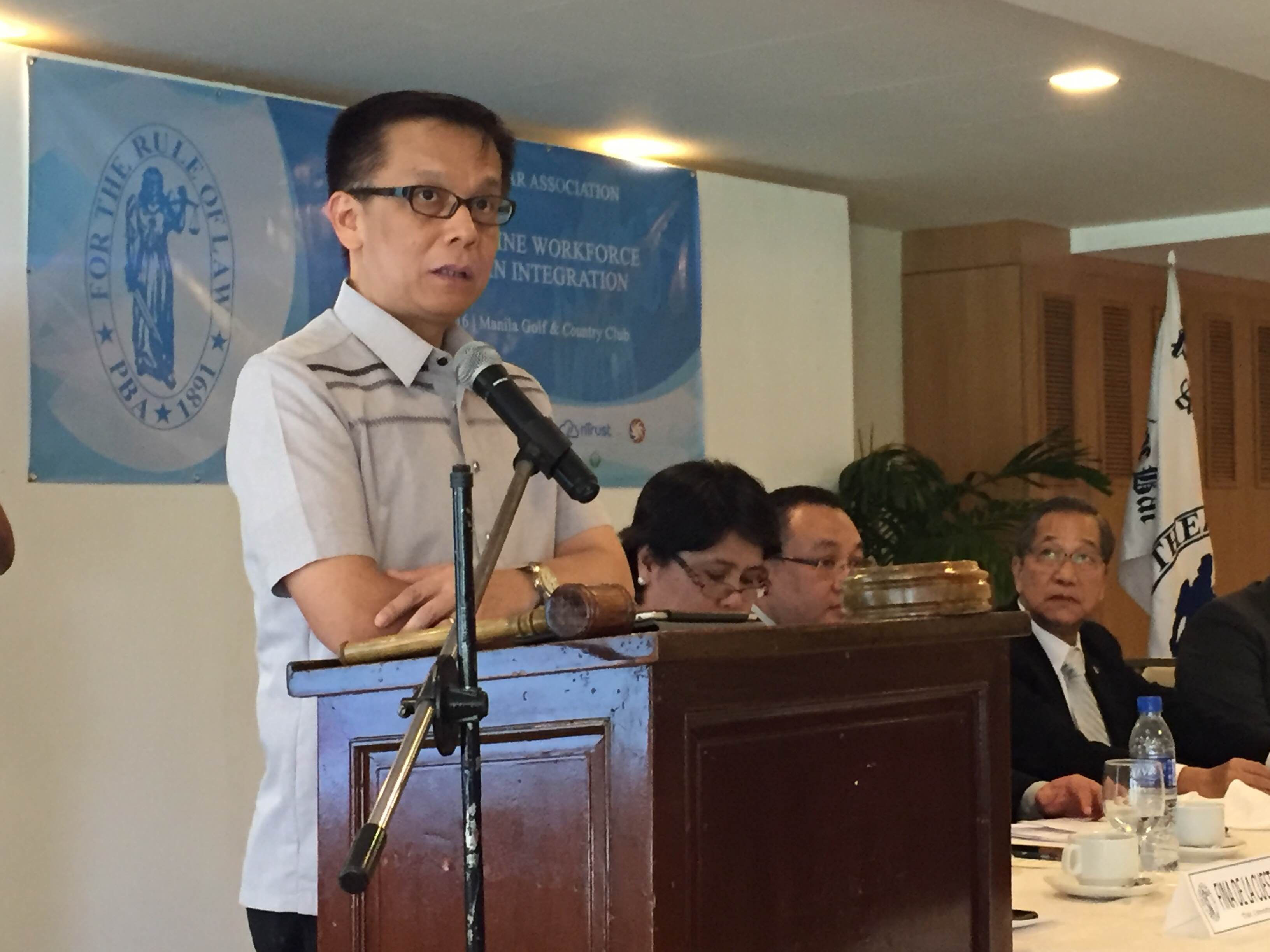SUMMARY
This is AI generated summarization, which may have errors. For context, always refer to the full article.

MANILA, Philippines – A businessman on Wednesday, May 18, clarified that contractualization per se cannot be completely abolished even under the administration of president-elect Rodrigo Duterte.
Speakers during a roundtable discussions on the Philippine work force and the ASEAN integration hosted by the Philippine Bar Association in Makati City were asked how the labor sector would manage to become competitive if Duterte pushes through with his plan to stop contractualization.
“I have to say that I cannot foresee a situation that contractualization will be abolished. It cannot. The construction industry, the whole service industry – janitorial services, guards, all of these – and the entire backbone of our OFW (overseas Filipino workers) is really contract workers,” said Donald Dee, acting president of the Employers Confederation of the Philippines.

“I think there’s a need for us to be able to explain these to the current administration and I’m hopeful that they will understand,” added the honorary chairman and chief operating officer of the Philippine Chamber of Commerce and Industry.
Contractualization is widely understood to refer to instances when big companies hire employees on a 6-month contractual basis without ever getting the necessary benefits.
Labor laws in the country, however, do not prohibit lawful subcontracting. (READ: Can the next president end contractualization?)
Ateneo de Manila professor Carmel Abao and lawyer Tony Salvador described lawful subcontracting as when “the principal employer can enter into a contract with a legitimate subcontractor who will then deploy the subcontractor’s contractual workers to the principal employer.”
Workers under this scheme receive the benefits of regular employees because they are regularized under a legitimate subcontractor, not the principal employer.
But businesses still circumvent the law, with employees’ contracts ending before the 6-month mark.
‘Demonized’ term?

During the roundtable discussion, lawyer Hans Leo Cacdac, chief of the Philippine Overseas Employment Administration, added that there are “legitimate forms” of contractualization.
“Siguro communication is key just to explain to our people what the real score is. Kasi ngayon parang na-demonize ‘yung term, ‘di ba?… Ang bottomline niyan is getting help from somebody else to make yourself more efficient,” he said.
(Communication is key just to explain to our people what the real score is. Because now the term seems to be demonized, right?… The bottomline is you’re getting help from somebody else to make yourself more efficient.)
He then likened lawful subcontracting to outsourcing services in a family household.
“Even in managing a household, you would have to outsource or subcontract certain skills set that you can’t perform as head or member of the household… If you own a business, then you will most likely do the same. If you can’t do something, if someone can do the job better, then you can bring in a contractor,” said Cacdac.
According to Dee, completely removing contract workers in the country would “unfortunately” mean an increase in unemployment.
“This thing, whether we like it or not, this has helped distribute the grace. So you give somebody work for 6 months, then she rest or he rest, then you give somebody else the opportunity. But once you make it difficult for a company, especially SMEs that ability to just keep on having casuals, which again I must contractual workers, they would most likely stop hiring,” he said. – Rappler.com
Add a comment
How does this make you feel?
There are no comments yet. Add your comment to start the conversation.